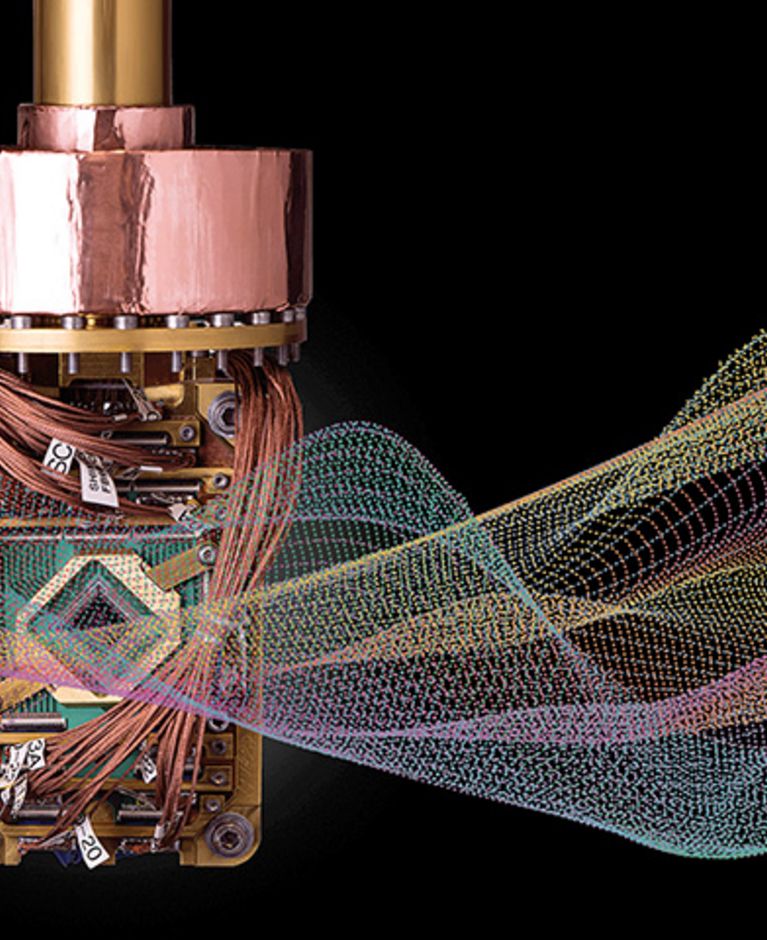
Quantum Computing
The development of a universal quantum computer is a Herculean task and probably represents the greatest scientific and technical challenge of our time.
Quantum computers promise to perform certain computing tasks that are beyond the capabilities of classical computers: tasks such as prime factorization and decryption. Moreover, breakthroughs are to be expected in research fields such as quantum simulation in chemistry, condensed matter physics, and high-energy physics as well as in optimization problems and machine learning. Despite great progress over the last few years, quantum computing is still in its infancy, much like classical computer technology was in the 1950s.
The Helmholtz Association, with its application-oriented research strategy, has the critical mass to become a leader in European quantum computing. It will develop prototypes and use cases that will realize the advantages of quantum technology for the real world and create a community of quantum computing users to support the use of quantum computation and annealing technologies for scientific and industry-related research.